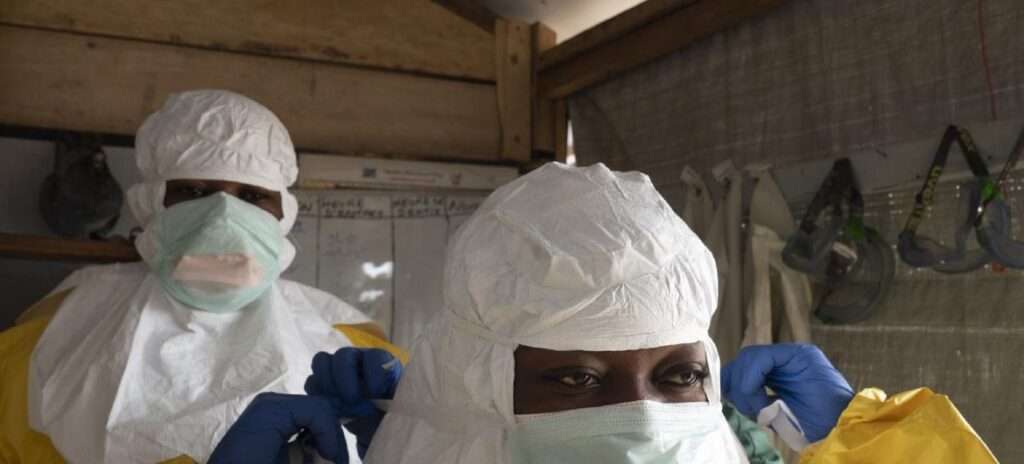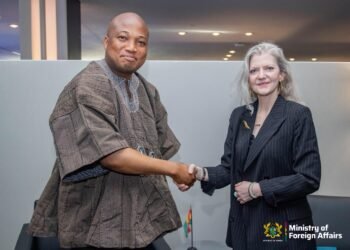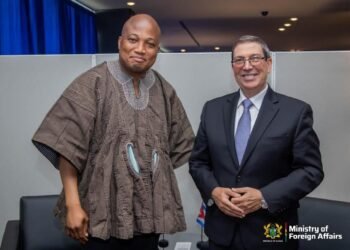The World Health Organization (WHO) has warned about the potentially devastating impact of US funding cuts on vital global health programs. Officials caution that these cuts threaten essential initiatives, including HIV treatment, polio eradication, and responses to mpox outbreaks in Africa.
WHO Director-General Tedros Adhanom Ghebreyesus outlined the dire consequences of these funding suspensions.
He specifically pointed to disruptions caused by the halt in financial support for the President’s Emergency Plan for AIDS Relief (PEPFAR), which has led to an immediate cessation of HIV treatment, testing, and prevention services across 50 countries.
Although a waiver has been granted for life-saving services, crucial prevention programs remain excluded, resulting in clinic closures and health worker furloughs. He urged the US government to reconsider its funding approach, at least until sustainable alternatives can be identified to maintain essential health services.
Meanwhile, Uganda is facing a new Ebola outbreak, with nine confirmed cases and one death. WHO has mobilized emergency teams to manage surveillance, treatment, and infection control measures.
A vaccine trial was initiated just four days after the outbreak was declared, and approval for a therapeutics trial is pending. To bolster efforts, WHO has allocated an additional $2 million from its Contingency Fund for Emergencies, supplementing an earlier $1 million allocation.

Conflict in DR Congo Worsens Humanitarian Crisis
The escalating humanitarian crisis in the Democratic Republic of the Congo (DRC) has further strained the country’s health system. Over 900 deaths and 4,000 injuries have been reported amid increasing violence in the eastern region. WHO officials stress that only a third of people in North and South Kivu receive necessary health services. The crisis has heightened the risk of infectious disease outbreaks, including mpox and cholera, while dwindling medical supplies and fuel shortages have hindered WHO’s ability to respond effectively.
Faith-based organizations that partner with the US government for international aid have also been severely impacted by the USAID shutdown. These organizations are now facing financial distress, layoffs, and furloughs as critical funding is withheld.
The situation has forced them to make difficult decisions about which life-saving programs to maintain. “That’s what keeps me up at night,” said Matthew Soerens, vice president of advocacy and policy at World Relief.
Two of the 12 largest non-governmental recipients of USAID funds—Catholic Relief Services (CRS) and World Vision — serve millions globally, providing essential services such as food, water, and healthcare in conflict zones.
CRS, established by US Catholic bishops in 1943, has warned staff of possible workforce reductions of up to 50% due to cuts in US foreign aid. The organization received nearly half of its $1.2 billion budget from USAID in 2023.
The Vatican’s global charity arm, Caritas, has strongly condemned the US decision, describing it as “ruthless” and warning that millions could die as a result. Caritas leaders argue that the funding halt could push hundreds of millions into “dehumanizing poverty.”
Although the US State Department has issued selective waivers allowing some organizations to continue their work, many aid groups report that federal funding has yet to be disbursed. Uncertainty surrounding the waiver approval process has exacerbated the crisis.
USAID staff have testified in court that they have received no guidance on how waiver requests are being processed, leaving aid organizations in limbo.
World Relief, which received a waiver to continue operations in Sudan, remains unable to access promised funds. “We can’t afford to misunderstand the instructions and spend resources that we don’t have,” Soerens said. “We have some cash reserves, but like most nonprofits, we don’t sit on months and months’ worth of cash.”
To bridge funding gaps, churches and private donors have contributed $4.5 million to World Relief in just two weeks. However, the organization still faces a $3.5 million shortfall, forcing it to furlough employees and cut back on essential services.
Despite these setbacks, WHO has reported progress in expanding access to childhood cancer treatment in low- and middle-income countries. “Yesterday, we began distributing childhood cancer medicines at no cost in the first two countries: Mongolia and Uzbekistan,” Tedros announced. Additional shipments are planned for four more countries as part of the Global Initiative on Childhood Cancer, a collaboration with St. Jude Children’s Research Hospital.
The initiative aims to address disparities in cancer survival rates between high-income and low-income nations by reaching 120,000 children across 50 countries over the next five to seven years. This development provides a glimmer of hope amid broader funding challenges, demonstrating the potential for targeted global health initiatives to improve outcomes despite financial constraints.
READ ALSO: Mahama’s Independence Day Celebration Scale-Down Wins Public Applause, But More is Needed
US funding cut



















